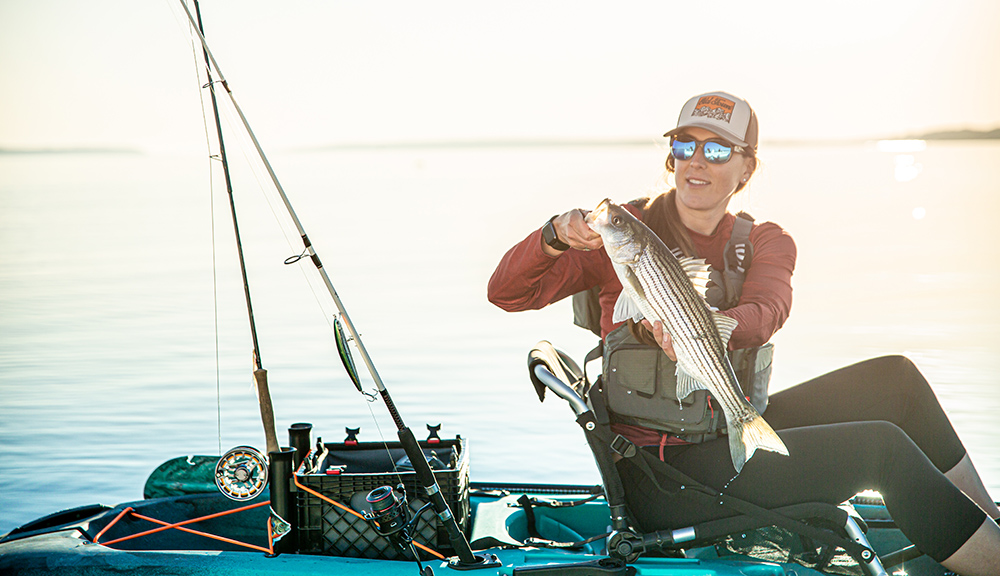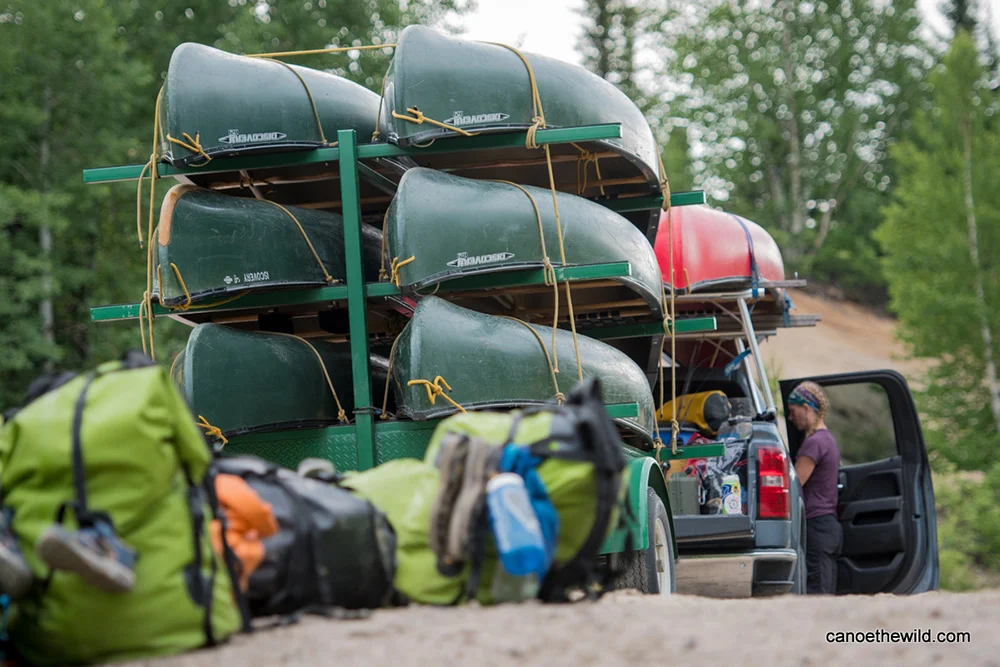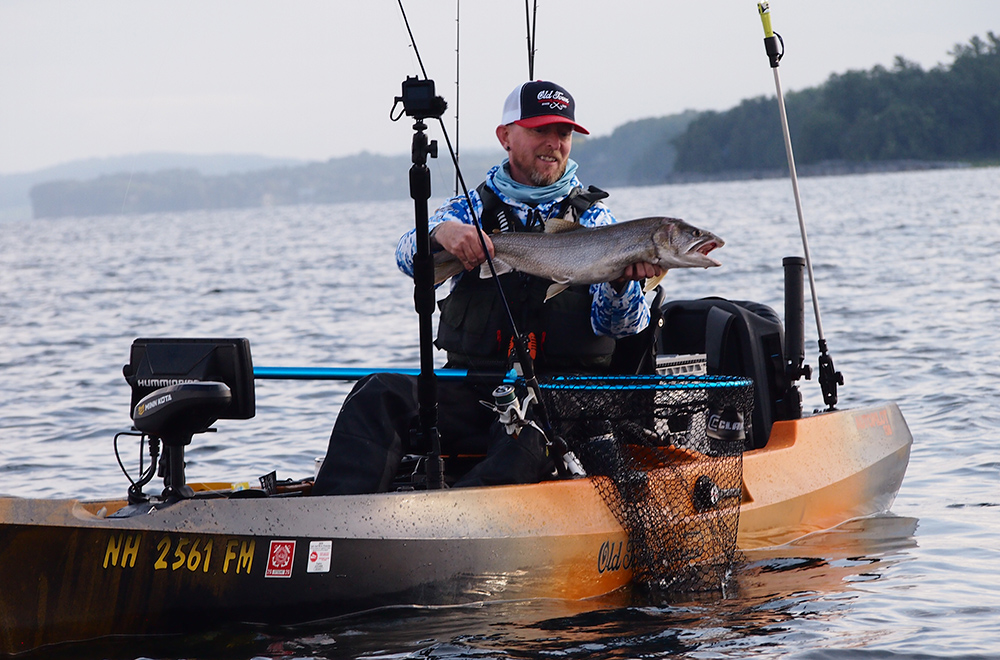The Guide Guide: How To Hire A Guide & Be A Good Sport
A certified professional guide is a person who has trained to provide a safe and memorable experience, no matter the outdoor activity. Whether paddling or fishing, hunting or camping, a well-trained guide leverages their expertise and know-how to enhance an individual's investment in an outdoor experience.
If you're a passionate outdoor enthusiast, chances are you have a bucket list trip or experience that you hope to one day fulfill. For some, it could be to paddle down the Grand Canyon or hike up Mount Rainier. For others, it could be to catch a native Maine brook trout or hunt a mule deer in Montana. Maybe you're bold enough to attempt a DIY experience, but hiring the right guide can improve your chance of accomplishing your goal.
Beyond bucket list dream trips, a professional guide is also an excellent resource for those who want to try new things outdoors. Perhaps you're a seasoned bass angler in the summer who wants to learn how to catch a lake trout through the ice. A knowledgeable guide can provide the jumpstart or confidence you need to propel yourself into a new experience or passion.
But for some, the thought or idea of hiring a guide is intimidating or overwhelming. You may have questions like How much should it cost? What gear does the guide include, and what should I bring?
At Old Town, we are fortunate to have several professional guides on our pro staff. We asked them a few frequently asked questions about hiring a guide as you consider hiring a guide for your next outdoor adventure.

WHAT SHOULD SOMEONE LOOK FOR WHEN HIRING A GUIDE?
Christi Holmes, a professional Maine Guide for fishing and hunting, suggests to "ask friends and acquaintances for guide recommendations. Look for a guide that, personality-wise, jives with you or your group (if it's a group experience) because you will spend all day, perhaps several days, with your guide."
In many places, it is illegal to hire someone as a guide who isn't licensed. For example, In Maine, the law defines a guide as "any person who receives remuneration for services accompanying or assisting person" (in the field, on the ice, or the water). So Holmes suggests that you verify that a guide is, in fact, fully licensed in the state where the outing takes place. Additionally, Tallie Martin and Jesika Lucarelli of Great Mountain Guide Service state that any legitimate guide "should be able to back up any pricing or package options on their website or printed marketing material."
If you plan to hire a guide in an unfamiliar state, guides Tallie and Jesika suggest that you narrow down the activity and geographical area. By narrowing your search, you'll be less likely to have an overwhelming list of guides to consider. Though some guides are willing to travel statewide, it is always a good idea to hire someone intimately familiar with the area you plan to recreate.
Tallie and Jesika add that "a guide should be quick to respond to your inquiry, enthusiastic, helpful and articulate, able to answer your questions."
Tim Moore of Tim Moore Outdoors, a fishing guide out of New Hampshire recommends leveraging the internet when choosing a guide. "In this day of the internet, it's easy to Google prospective fishing guides to check out reviews, good or bad." Moore adds that a guide should make booking easy and simple and that their website should be "neat and organized, providing answers to frequently asked questions and must clearly state rates and the cancellation policy"
WHAT SHOULD A GUIDE PROVIDE FOR GEAR, EXPERTISE, ETC.?
If you have done your homework and found a guide who has the experience, Holmes explains that they "should have a depth of knowledge in their area of expertise and the general area." She adds that "guides usually provide all of the necessary gear and supplies, except a license, and that if it is a full-day outing, they should provide a lunch."
Beyond gear and supplies, consider safety. Tallie and Jesika recommend that "you should look for a guide who is experienced in first aid and has current, up-to-date certifications. They should ask you about food allergies and preferences beforehand." Tim Moore agrees and adds that a guide should also offer any of the necessary safety gear, such as a PFD, while out on the water fishing.
Moore suggests, for a good experience, you should find a guide who is a specialist in the activity you paying them to guide you in. He says that a guide "should have knowledge of the species they guide for, because much of what clients are paying for is local knowledge." For instance, if your goal is to land a nice Salmon on the fly, you probably shouldn't hire a guide who primarily fishes for bass with conventional tackle. Some guides pride themselves in being proficient in many things, but for the best experience possible, Moore recommends not selecting a guide who is a jack of all trades, master of none.

HOW MUCH SHOULD I EXPECT TO PAY FOR A DAY OF GUIDED ACTIVITY?
Cost depends a lot on activity. For instance, a day of fishing in a local trout stream may cost less per day than a guided moose hunt expedition in a remote location, mainly due to the guide's added expense of producing the experience. But generally speaking, and depending on the activity, most guides offer full and partial day options. According to Holmes, rates start around $200 per person, per day. For chartered fishing trips, sometimes guides require a minimum or maximum group size (depending on the boat size and trip length) and may charge a group or per person rate.
Moore offers guided kayak fishing trips and suggests that clients can expect to pay roughly $500 for a 2 person half-day kayak fishing excursion. "I provide my clients with Old Town Sportsman Bigwater 132 PDL kayaks, properly fitted Old Town PFDs, newer rods and reels and all the bait and tackle needed for the trip. The kayaks are ready at the water's edge when the trip is scheduled to begin. All that my clients need to do is show up appropriately dressed for the conditions."
IS THERE GENERAL ETIQUETTE TO CONSIDER WHEN HIRING A GUIDE?
According to Holmes, Tallie, and Jesika, It is always good to understand your ability level, physical abilities, and limitations. And be upfront with your guide about it beforehand. It affords your guide the chance to either make the appropriate adjustments or accommodations needed to provide you with the best experience possible or point you to another option.
No matter if you were successful or not or if the weather cooperated or didn't, the guide's job is to leverage their years of knowledge and expertise to provide you with a safe and enjoyable experience outdoors. So if you had a good experience, regardless of weather and success, consider tipping your guide and recommending them to others, as it is their livelihood. Moore offers that guiding is a service industry job and that tips are appreciated. Holmes and Moore both suggest that a 15-20% tip is standard.

Interested in hiring an Old Town pro staff member to guide you on your next adventure? Here's a complete list of pro staffers and brand partners who offer guiding services:
Tim Moore Outdoors
www.timmooreoutdoors.com
Facebook | YouTube | Instagram
Christi Holmes
Facebook | Instagram
Great Mountain Guide Service
Jesika Lucarelli & Tallie Martin
www.greatmountainguideservice.com
Instagram
Canoe The Wild
Dave Conley
www.canoethewild.com
Facebook | Instagram
Gatecrasher Fishing
Virginia Salvador
www.gatecrasherfishing.com
Facebook | YouTube | Instagram
Antidote Fishing Charters
Denes Szakacs & Robwil Valderrey
www.antidotefishingcharters.com
Facebook | YouTube | Instagram
Casting Kayaks
Eric Henson
www.castingkayaks.com
Instagram






